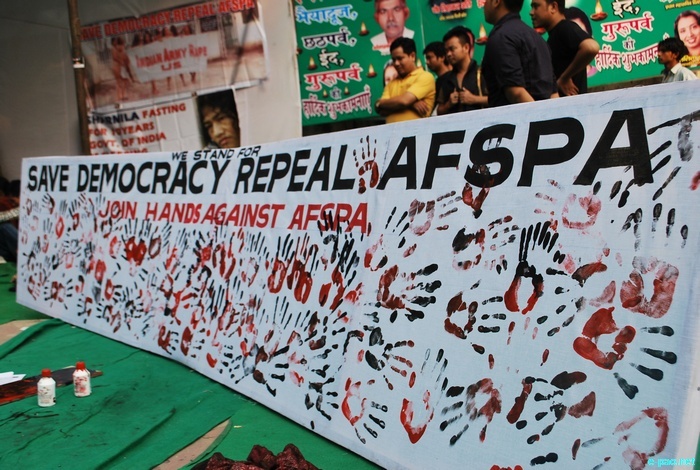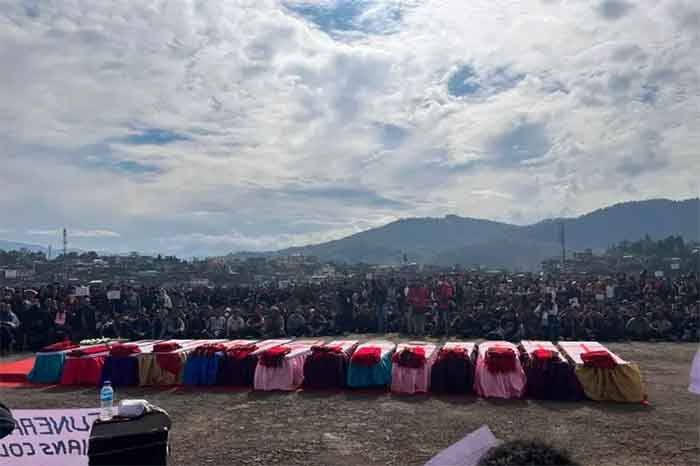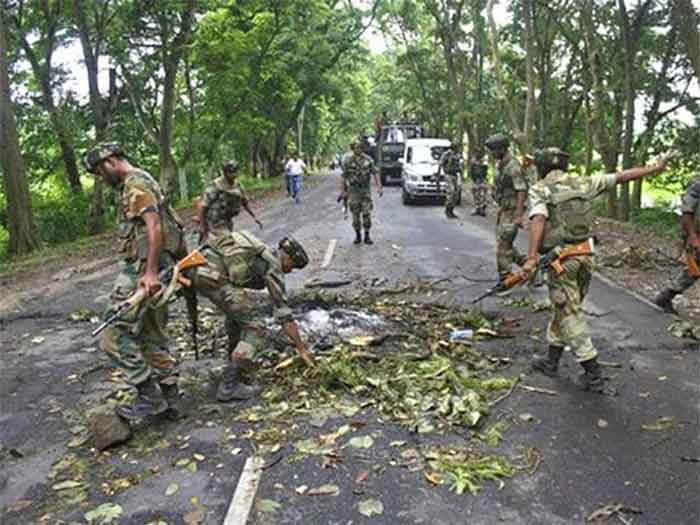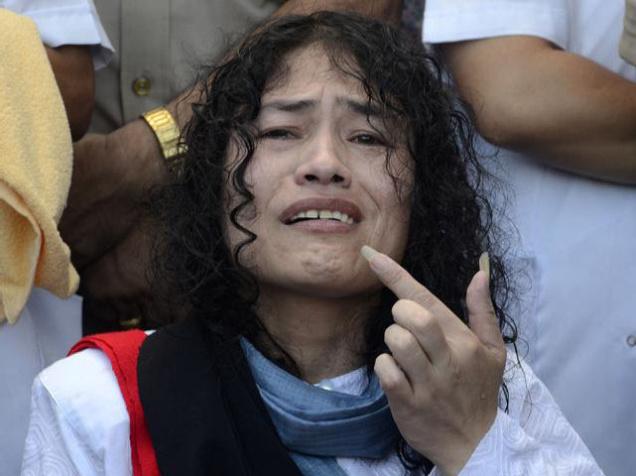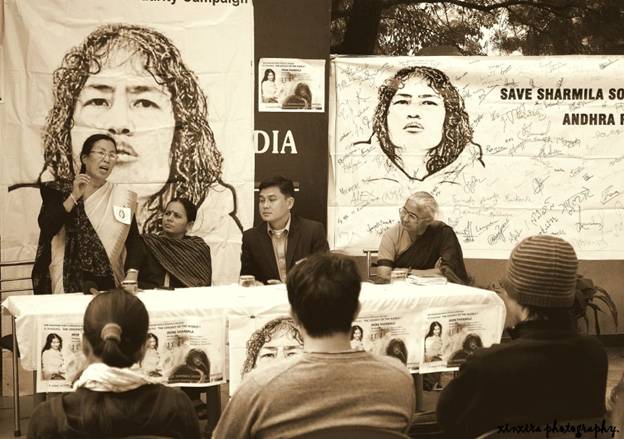As India celebrates its anniversary of independence from the British rule it, is worthwhile to ask when the people of Jammu and Kashmir and Manipur will get freedom from the Armed Forces (Special Power) Act 1958 (AFSPA) which is no less than being living under the colonial rule.
The law that the British conceived in the wake of quit India movement of 1942, was first promulgated in 1958 to counter a parallel government established by the militant groups in the Naga Hills. In a war like situation the security forces were empowered to assert the sovereignty of the state against an armed ‘internal enemy’. But presently in J&K and Manipur there are elected governments. In such a situation, AFSPA’s use in the civilian areas does not stand scrutiny at first sight.
It needs no repetition that the AFSPA is a draconian piece of legislation and when in operation, a citizen is under a constant shadow of fear that he may be turned into a victim by the security forces at any time while going about his normal daily chores such as travelling to the office or visiting friends. As the region is declared a ‘disturbed area’, the security personnel can randomly question people and can be rude to the extent of causing bodily injury, rape and death while at the same time going unpunished, for under the law they enjoy impunity.
Sixteen years back in November 2000, what is now known as ‘Malom Massacre’ ten innocent people, including an eighteen year old national bravery award winner waiting at a bus stop, were killed. Evidently, it was a retaliatory use of force against the innocent people who were unarmed and going on their daily errands. It was ghastly act of terrorizing and punishing innocent citizens under the shield of AFSPA. No one ever got punished!
For the last twenty six years, AFSPA is in operation in Kashmir. Thousands have got maimed, killed and disappeared. There are officially acknowledged unmarked graves and visible disfigured faces. Pellet gun wounds have left thousands of young men scarred in body and soul. It is justified to ask whether government is using AFSPA as a substitute for a policy on Kashmir. If so then government has been executing a blunder.
As a policy AFPSA can never succeed because the repressive laws have a tendency to alienate general public of a region, thereby expanding the support base of discontent of which militancy could be one of the off shoots that may also have some covert community support.
Secondly, under the protection of laws like AFPSA the acts of omission and commission by the security forces allegedly result in mass killings, rapes, disappearances and torture. In the process the state loses legitimacy and moral authority to rule. This is what has happened in Kashmir presently. The elected Chief Minister of the state is unable to face her own people.
Interestingly, the AFPSA has come under scrutiny and fire of the judiciary many a times. Jeevan Reddy committee (2004) and Santosh Hegde committee (2013) questioned its content and operation. Irom Sharmila has undertook, perhaps world’s longest fast, against the law. The Supreme Court too recently held in its judgment that there cannot be an absolute immunity from trial by a criminal court (The Hindu, 9 July 2016). Then why is that the Indian government is not listening and treating its own citizens as enemy?
It seems that the laws like AFSPA suit the establishment. The contention gets credence from the statement of Irom Sharmila, who in an interview said that the government and the army are colluding to defraud people implying that the both are beneficiaries of the ‘disturbed areas’ grants from the centre without financial and administrative accountability (The Hindu, 5 March 2013).
In Kashmir too, militancy has become an industry that serves an elite while common masses continue to be fodder for fire. The continuation of AFPSA seems to serve and benefit a powerful section of the establishment of the state including the Army, political leadership, police and civil administration as well as the ‘separatists’. No wonder J&K continues to be India’s one of the top corrupt states. It also serves to brand victimized population as ‘anti-national’ therefore deserving punishment without invoking moral outrage in rest of India against the killings.
Recognizing that the unrest in Kashmir and Manipur is for justice, democracy, , rule of law and right to be heard; and it is the only way to break the present jinx as Rajiv Gandhi showed in regard to Nagaland and Atal Bihari Vajpaee in the past attempted in relation to Kashmir with accolades. It is about respecting the values enshrined in the preamble of our constitution and extending them to our own people who are also part of an ‘independent’ India. Unless we do so, Independence Day will have little meaning for the people of Kashmir and Manipur.
Pushkar Raj is a Melbourne based writer. Formerly he taught political science in University of Delhi and was the national general secretary of PUCL.Views are personal. He can be contacted at[email protected]

